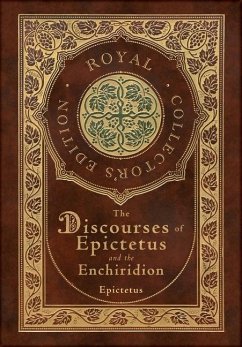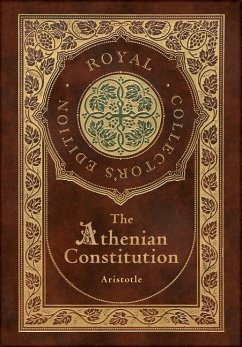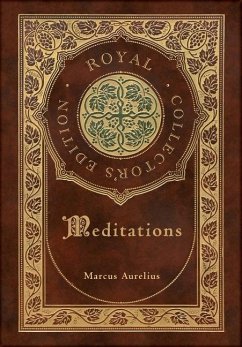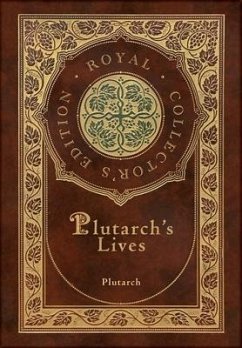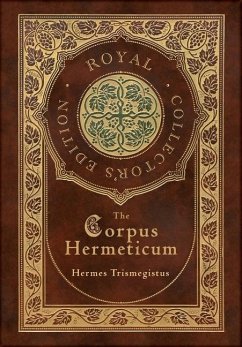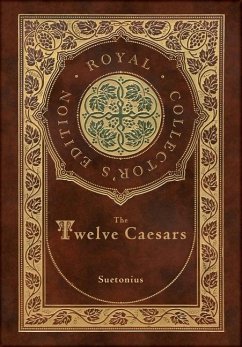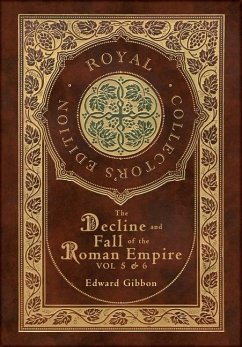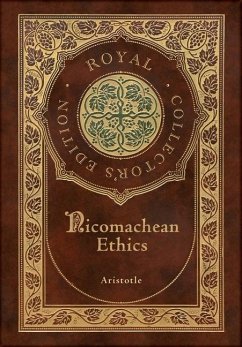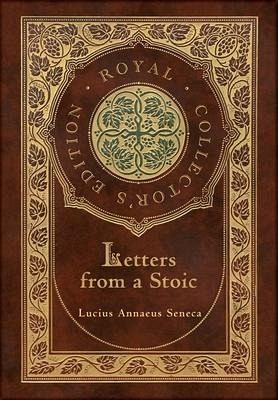
Lucius Annaeus Seneca
Gebundenes Buch
Letters from a Stoic (Complete) (Royal Collector's Edition) (Case Laminate Hardcover with Jacket)
Versandkostenfrei!
Versandfertig in über 4 Wochen

PAYBACK Punkte
23 °P sammeln!




Letters from a Stoic, include Seneca's complete surviving collection of 124 letters. The letters focus on many themes of Stoic philosophy such as the contempt of death, the stout-heartedness of the sage, and virtue as the supreme good.
Seneca the Younger (c. 4 BC - AD 65), fully Lucius Annaeus Seneca and also known simply as Seneca, was a Roman Stoic philosopher, statesman, dramatist, and-in one work-satirist of the Silver Age of Latin literature. Seneca was born in Corduba in Hispania, and raised in Rome, where he was trained in rhetoric and philosophy. His father was Seneca the Elder, his elder brother was Lucius Junius Gallio Annaeanus, and his nephew was the poet Lucan. In AD 41, Seneca was exiled to the island of Corsica by the emperor Claudius, but was allowed to return in 49 to become a tutor to Nero. When Nero became emperor in 54, Seneca became his advisor and, together with the praetorian prefect Sextus Afranius Burrus, provided competent government for the first five years of Nero's reign. Seneca's influence over Nero declined with time, and in 65 Seneca was forced to take his own life for alleged complicity in the Pisonian conspiracy to assassinate Nero, in which he was likely to have been innocent. His stoic and calm suicide has become the subject of numerous paintings. As a writer, Seneca is known for his philosophical works, and for his plays, which are all tragedies. His prose works include a dozen essays and one hundred twenty-four letters dealing with moral issues. These writings constitute one of the most important bodies of primary material for ancient Stoicism. As a tragedian, he is best known for plays such as his Medea, Thyestes, and Phaedra. Seneca's influence on later generations is immense-during the Renaissance he was a sage admired and venerated as an oracle of moral, even of Christian edification; a master of literary style and a model for dramatic art.
Produktdetails
- Verlag: Engage Books
- Seitenzahl: 444
- Erscheinungstermin: 30. Dezember 2020
- Englisch
- Abmessung: 232mm x 164mm x 35mm
- Gewicht: 816g
- ISBN-13: 9781774760833
- ISBN-10: 1774760835
- Artikelnr.: 64374420
Herstellerkennzeichnung
Libri GmbH
Europaallee 1
36244 Bad Hersfeld
gpsr@libri.de
Für dieses Produkt wurde noch keine Bewertung abgegeben. Wir würden uns sehr freuen, wenn du die erste Bewertung schreibst!
Eine Bewertung schreiben
Eine Bewertung schreiben
Andere Kunden interessierten sich für


